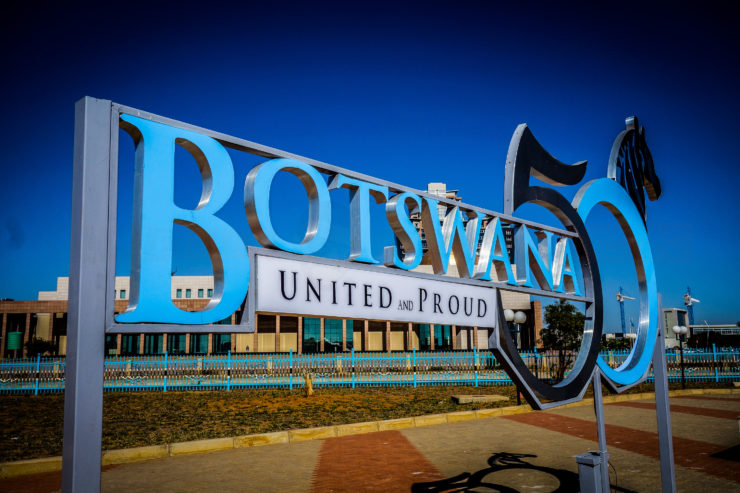
Security and stability in Africa are major issues for the international community. The continent faces many challenges, such as terrorism, armed conflicts, piracy and humanitarian crises. In this context, cooperation between African states and international partners is essential to promote peace and security. It is within this framework that the African Chiefs of Staff Conference was organized in Gaborone, Botswana, from June 24 to 26, 2024, although it betrayed its initial objectives. In this article, we will take an in-depth look at the issues and outcomes of this conference, as well as the implications for security and stability in Africa. We will also analyze the challenges and opportunities for cooperation between African states and international partners in the field of security.
Conference issues and outcomes: implications for security and stability in Africa
The conference of African chiefs of staff was held for the first time on African soil in Gaborone (Botswana). While the first edition recorded participation from 43 countries in Italy, participation in this second edition increased to 35 countries, including members of NATO and the American delegation. While the main stated objective was to discuss common security and stability challenges in Africa, in reality the discussions focused on strategy to counter Chinese and Russian influence in Africa, as well as the growing presence of Russia on the continent. The United States expressed concern over the expansion of Russia and China in Africa and stressed the importance of promoting partnerships based on common values. The values at stake are the perpetuation of the domination of the Western world over the rest of the world. The conference was held in the context of the withdrawal of Pentagon forces from Niger and Chad. The United States has decided to redeploy its military forces from the Sahel to other African sub-regions, notably southern Africa. This is how Botswana was identified as a key partner in this region.
Challenges and opportunities: the ulterior intentions of the transfer of the C-130H Hercules military transport aircraft to Botswana
The United States has solidified its partnership with Botswana by donating a $30 million Lockheed C-130H Hercules aircraft to the Botswana Air Force. This aircraft will certainly strengthen Botswana’s capacity to carry out defense, humanitarian and emergency response missions, its transfer constitutes a step taken as part of the opening of American military bases in the country. The conference also highlighted the importance of cooperation between political and military authorities. Admiral Rob Bauer, Chairman of the NATO Military Committee, emphasized the need for well-defined mission command and balanced relationships between political and military authorities. On the sidelines of the conference, discussions took place with the chiefs of staff of various African countries and General Michael E. Langley, Commander of AFRICOM, to explore avenues for cooperation in the face of security challenges. current. This conference therefore enters into a recolonization approach which consists of taking control of the country’s resources, while calling on the authorities when it comes to self-determination in the face of certain given situations.
Shadows of the conference: challenges and concerns
The African Chiefs of Staff Conference, held in Gaborone from June 24 to 26, 2024, aroused serious concerns and raised many questions. Although the event was presented as an opportunity to strengthen security cooperation in Africa, several negative points emerge, calling into question the real effectiveness of this conference.
First of all, the massive presence of the United States and NATO has raised fears about Western control over African affairs. The conference was seen as an attempt by Washington to consolidate its influence on the continent, to the detriment of the sovereignty of African states. Additionally, the conference was marked by the absence of representatives from several key African countries, including Nigeria, Egypt and Algeria. This absence raised questions about the representativeness and legitimacy of the conference. Furthermore, the discussions were dominated by the geopolitical interests of Western powers, notably the fight against Chinese and Russian influence in Africa. Security challenges specific to African states, such as terrorism and armed conflicts, have been relegated to the background.
Additionally, the conference was criticized for its lack of transparency and participation of non-state actors, such as civil society organizations and the media. The decisions taken at the conference were considered non-inclusive and not representative of the needs and concerns of African populations. Finally, the conference highlighted the dependence of African states on international partners for their security and stability. This dependence has been seen as a threat to the sovereignty and autonomy of African states.
We can therefore say that the conference of African chiefs of staff raised more questions than it resolved. The challenges and concerns raised by this conference must be taken into account to prevent African states from being drawn into security partnerships that do not serve their interests. It is essential that African states take control of their security and stability, without allowing themselves to be influenced by the geopolitical interests of Western powers.
Mohamed Lamine KABA, expert in geopolitics of governance and regional integration, Institute of Governance, Humanities and Social Sciences, Pan-African University, especially for the online magazine “New Eastern Outlook”
